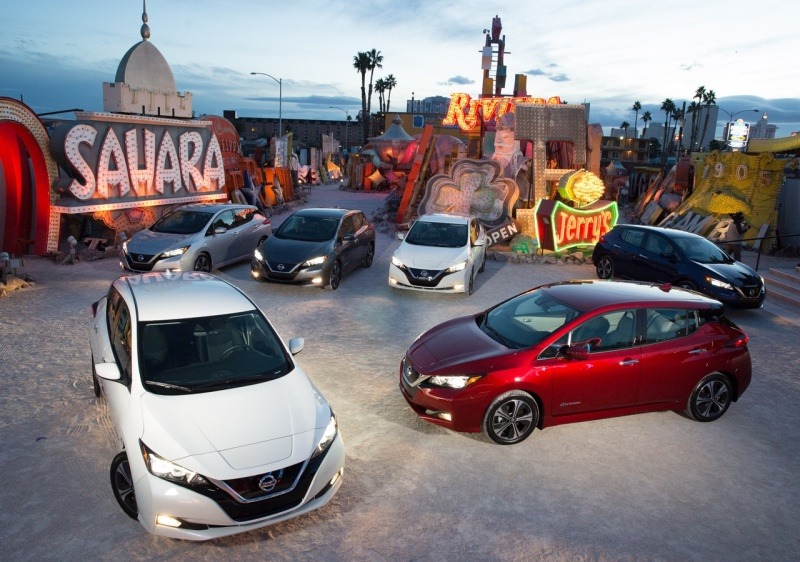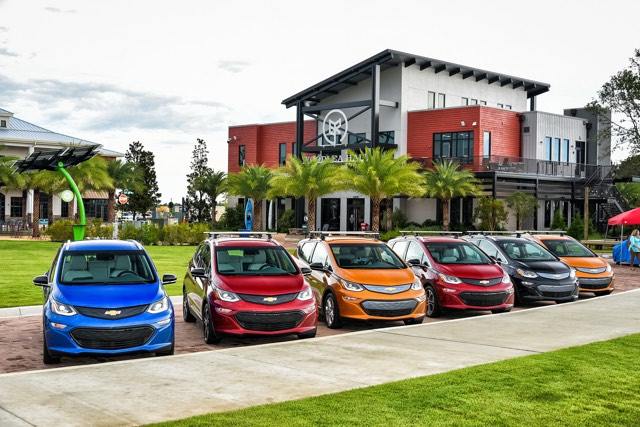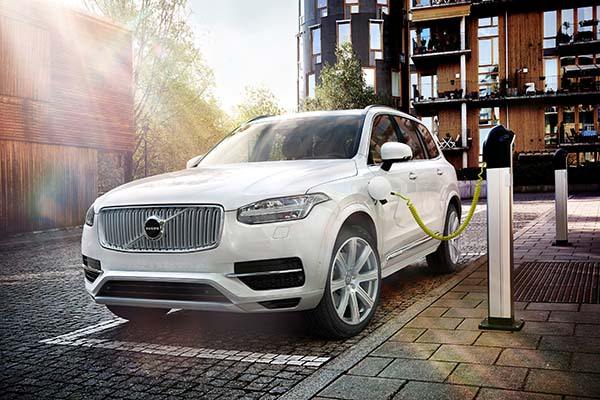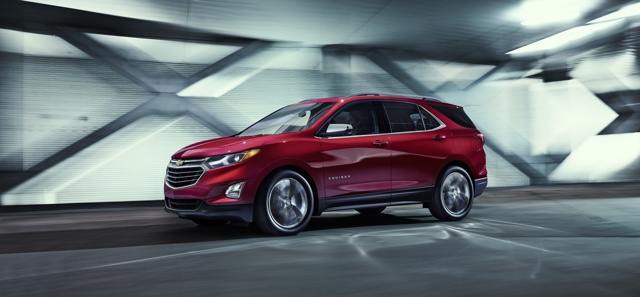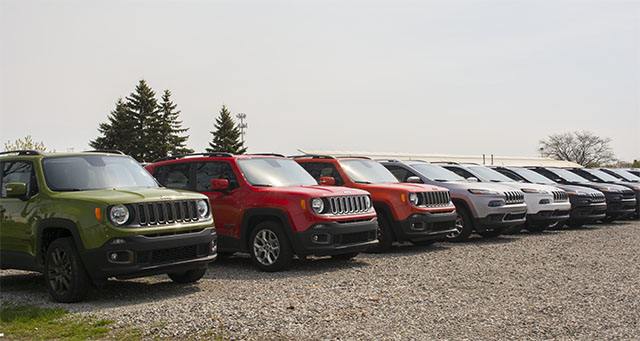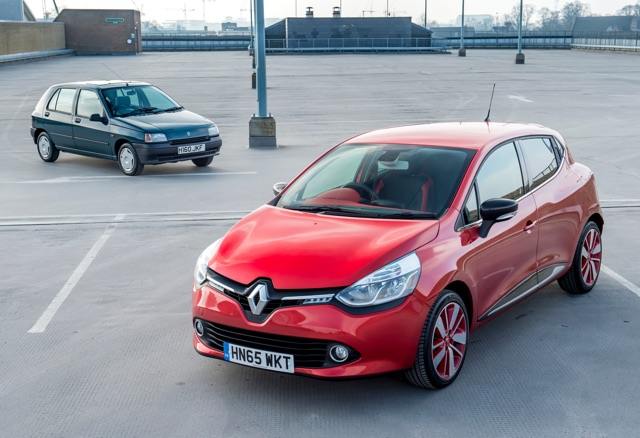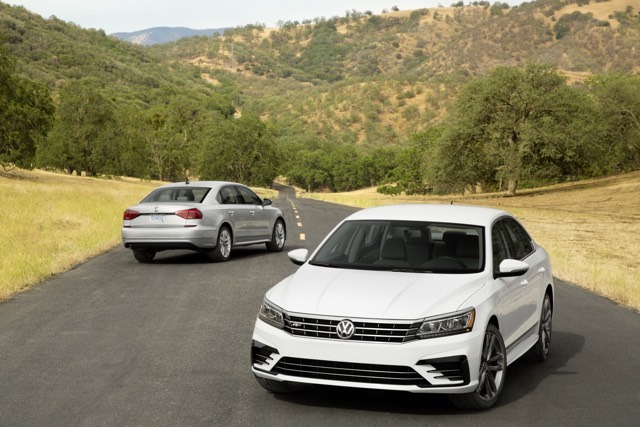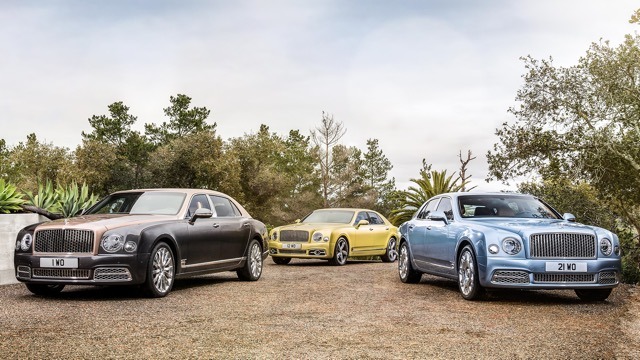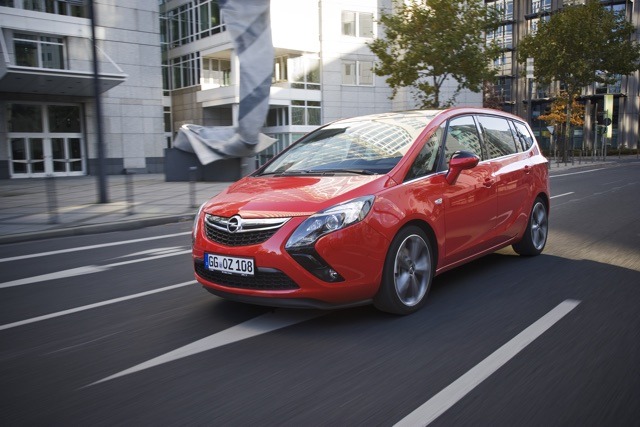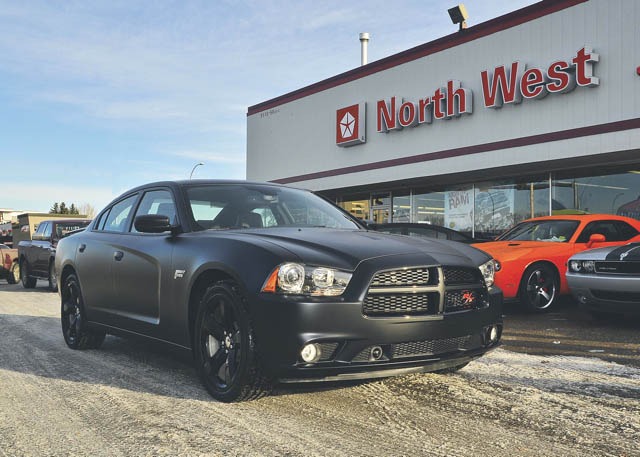Search the Community
Showing results for tags 'Regulations'.
-
In a move that was expected to happen soon, the EPA announced that it plans to revise the fuel-efficiency regulations that were approved during the President Obama administration. “The Obama EPA’s determination was wrong. Obama’s EPA cut the midterm evaluation process short with politically charged expediency, made assumptions about the standards that didn’t comport with reality and set the standards too high,” said EPA chief Scott Pruitt in a statement today. The statement goes on to say that the agency will begin working on new standards for cars for 2022-2025 with the National Highway Traffic Safety Administration. The regulations that were finalized during Obama's tenure would require automakers to have fuel economy fleet average of over 50 mpg by 2025. Automakers have been pushing for the standards to be rolled back as it would cause vehicles to become more expensive, and consumers aren't buying fuel-efficient vehicles. “This was the right decision. To ensure ongoing fuel economy improvement, the wisest course of action is to keep new vehicles affordable so more consumers can replace an older car with a new vehicle that uses much less fuel -- and offers more safety features," said Gloria Bergquist, a spokeswoman for the Alliance of Automobile Manufacturers - a trade group that represents a dozen automakers including GM and Ford. Unsurprisingly, this move has brought forth criticism from both consumer and environmental groups. “EPA’s decision defies the robust record and years of review that show these targets are reasonable and appropriate,” said David Friedman, director of cars and products policy and analysis for Consumers Union, the advocacy division of Consumer Reports. “Undermining these consumer protections will cost consumers more at the pump while fulfilling the wishes of the auto industry.” The EPA also announced that it was considering revoking California's waiver that allows it to set its own emission rules that are tougher than the federal regulations. Aside from California, 12 other states have adopted these standards that together account for a third of car sales in the U.S. Since President Donald Trump entered the white house, the relationship between the EPA and California has become very strained. California officials have vowed to fight back if the EPA goes forward. Source: Automotive News (Subscription Required) View full article
- 54 replies
-
- 1
-

-
- epa
- fuel economy
-
(and 2 more)
Tagged with:
-
In a move that was expected to happen soon, the EPA announced that it plans to revise the fuel-efficiency regulations that were approved during the President Obama administration. “The Obama EPA’s determination was wrong. Obama’s EPA cut the midterm evaluation process short with politically charged expediency, made assumptions about the standards that didn’t comport with reality and set the standards too high,” said EPA chief Scott Pruitt in a statement today. The statement goes on to say that the agency will begin working on new standards for cars for 2022-2025 with the National Highway Traffic Safety Administration. The regulations that were finalized during Obama's tenure would require automakers to have fuel economy fleet average of over 50 mpg by 2025. Automakers have been pushing for the standards to be rolled back as it would cause vehicles to become more expensive, and consumers aren't buying fuel-efficient vehicles. “This was the right decision. To ensure ongoing fuel economy improvement, the wisest course of action is to keep new vehicles affordable so more consumers can replace an older car with a new vehicle that uses much less fuel -- and offers more safety features," said Gloria Bergquist, a spokeswoman for the Alliance of Automobile Manufacturers - a trade group that represents a dozen automakers including GM and Ford. Unsurprisingly, this move has brought forth criticism from both consumer and environmental groups. “EPA’s decision defies the robust record and years of review that show these targets are reasonable and appropriate,” said David Friedman, director of cars and products policy and analysis for Consumers Union, the advocacy division of Consumer Reports. “Undermining these consumer protections will cost consumers more at the pump while fulfilling the wishes of the auto industry.” The EPA also announced that it was considering revoking California's waiver that allows it to set its own emission rules that are tougher than the federal regulations. Aside from California, 12 other states have adopted these standards that together account for a third of car sales in the U.S. Since President Donald Trump entered the white house, the relationship between the EPA and California has become very strained. California officials have vowed to fight back if the EPA goes forward. Source: Automotive News (Subscription Required)
- 54 comments
-
- epa
- fuel economy
-
(and 2 more)
Tagged with:
-
Between now and 2022, at least 50 electric vehicles will be launched. They'll be coming from the likes of Volkswagen, Diamler, and General Motors. Heck, even Dyson is getting into the game. But why this rush to get EVs on the road? It comes down to two things, Tesla and upcoming regulations. “Nobody doubts that the future will be electric. The car companies dragged their feet with electric. Now they are being dragged into it by Tesla and by regulations,” said Erich Joachimsthaler, founder and CEO of brand-strategy firm Vivaldi to Bloomberg. Tesla makes sense as they have created a cult of personality with rabid fans and somehow selling vehicles like hotcakes. As for the regulations, various countries such as France and Great Britain have announced bans on internal combustion engines in new vehicles in the near future. Other places such as China and the state of California are considering similar bans. China has also introduced regulations meant to cut emissions and pollution by 2030. One of those is for automakers to sell a certain percentage of "of so-called new-energy vehicles -- which include electric cars" to obtain credits to sell models with internal combustion engines. But there are questions about this move. For one, how is any automaker going to make money with EVs? At the moment GM loses $9,000 for every Chevrolet Bolt EV sold, while Fiat Chrysler Automobiles loses an eye-watering $20,000 on each Fiat 500e sold. Battery tech is one of the key reasons for this, but new technologies and improvements are helping bring the price down. Also, will consumers embrace this onslaught of EVs? Last year, EVs only made up less than one percent of the U.S. market. “Companies are committed to electric cars, but there is little evidence that there is a lot of consumer demand for it,” said Kevin Tynan, senior analyst with Bloomberg Intelligence. Source: Bloomberg
- 31 comments
-
- 1
-

-
- electric cars
- market
-
(and 3 more)
Tagged with:
-
Between now and 2022, at least 50 electric vehicles will be launched. They'll be coming from the likes of Volkswagen, Diamler, and General Motors. Heck, even Dyson is getting into the game. But why this rush to get EVs on the road? It comes down to two things, Tesla and upcoming regulations. “Nobody doubts that the future will be electric. The car companies dragged their feet with electric. Now they are being dragged into it by Tesla and by regulations,” said Erich Joachimsthaler, founder and CEO of brand-strategy firm Vivaldi to Bloomberg. Tesla makes sense as they have created a cult of personality with rabid fans and somehow selling vehicles like hotcakes. As for the regulations, various countries such as France and Great Britain have announced bans on internal combustion engines in new vehicles in the near future. Other places such as China and the state of California are considering similar bans. China has also introduced regulations meant to cut emissions and pollution by 2030. One of those is for automakers to sell a certain percentage of "of so-called new-energy vehicles -- which include electric cars" to obtain credits to sell models with internal combustion engines. But there are questions about this move. For one, how is any automaker going to make money with EVs? At the moment GM loses $9,000 for every Chevrolet Bolt EV sold, while Fiat Chrysler Automobiles loses an eye-watering $20,000 on each Fiat 500e sold. Battery tech is one of the key reasons for this, but new technologies and improvements are helping bring the price down. Also, will consumers embrace this onslaught of EVs? Last year, EVs only made up less than one percent of the U.S. market. “Companies are committed to electric cars, but there is little evidence that there is a lot of consumer demand for it,” said Kevin Tynan, senior analyst with Bloomberg Intelligence. Source: Bloomberg View full article
- 31 replies
-
- electric cars
- market
-
(and 3 more)
Tagged with:
-
Volvo stunned the world last Wednesday when they announced beginning in 2019, they would begin to phase out gas only vehicles and replacing them with hybrid and electric models. The company claims this strategy heralds "a new chapter in automotive history". This move is an about-face for the Swedish automaker. Previously, the company said electric vehicles didn't make a great business case. But there is more to this decision than meets the eye. Automotive News reports that a key reason for Volvo's electrification plans comes down to the increasing regulation on carbon dioxide (CO2) emissions in three key markets; Europe, China, and U.S. Tim Urquhart, principal analyst at IHS Markit tells AN that Volvo would struggle to meet the tougher targets on their larger vehicle without some sort of electrification. "They've looked at the targets, and thought, we need to take serious action." Another reason comes in part from the fallout of the Volkswagen diesel emission scandal. Automakers in Europe were using diesel engines as they produced 15 to 20 percent less CO2 emissions. But the backlash against diesel after the scandal has caused buyers to look elsewhere. In Germany for example, sales of diesel vehicles dropped to 39 percent in June - this figure was almost 50 percent the same time last year. "Diesel was their main weapon of choice to hit these regulations. Now they have to come up with a plan B," said Matthias Schmidt, automotive market analyst for AID. According to data from AID, 83 percent Volvo's 2016 sales in Europe were comprised of diesels. This is high when compared to BMW (73 percent), Mercedes-Benz (73 percent), and Audi (68 percent). Only Land Rover (96 percent) and Jaguar (84 percent) were higher. Source: Automotive News (Subscription Required)
-
Volvo stunned the world last Wednesday when they announced beginning in 2019, they would begin to phase out gas only vehicles and replacing them with hybrid and electric models. The company claims this strategy heralds "a new chapter in automotive history". This move is an about-face for the Swedish automaker. Previously, the company said electric vehicles didn't make a great business case. But there is more to this decision than meets the eye. Automotive News reports that a key reason for Volvo's electrification plans comes down to the increasing regulation on carbon dioxide (CO2) emissions in three key markets; Europe, China, and U.S. Tim Urquhart, principal analyst at IHS Markit tells AN that Volvo would struggle to meet the tougher targets on their larger vehicle without some sort of electrification. "They've looked at the targets, and thought, we need to take serious action." Another reason comes in part from the fallout of the Volkswagen diesel emission scandal. Automakers in Europe were using diesel engines as they produced 15 to 20 percent less CO2 emissions. But the backlash against diesel after the scandal has caused buyers to look elsewhere. In Germany for example, sales of diesel vehicles dropped to 39 percent in June - this figure was almost 50 percent the same time last year. "Diesel was their main weapon of choice to hit these regulations. Now they have to come up with a plan B," said Matthias Schmidt, automotive market analyst for AID. According to data from AID, 83 percent Volvo's 2016 sales in Europe were comprised of diesels. This is high when compared to BMW (73 percent), Mercedes-Benz (73 percent), and Audi (68 percent). Only Land Rover (96 percent) and Jaguar (84 percent) were higher. Source: Automotive News (Subscription Required) View full article
-
Despite the dark cloud that diesel has gotten due to the Volkswagen diesel emission scandal, General Motors sees a bright future for it. “The outlook for diesel in the U.S.A. is actually promising. We definitely see certain segments reaching 10 percent penetration and yes, an upside potential of 10 percent overall,” said Dan Nicholson, GM’s vice president of global propulsion systems to The Detroit News. Case in point, nine percent of Chevrolet Colorado and GMC Canyon trucks sold are equipped with a diesel. General Motors already has six vehicles available with a diesel (Silverado and Sierra HD: Colorado, Canyon, Express, and Savana). But they are planning to add three more diesel models in the coming year - Cruze, Equinox, and Terrain. Why? A lot of it comes down to the upcoming CAFE mandate that an automaker's fleet average must meet 54.5 mpg by 2025. GM sees diesel as a way to help reach this goal. Also with the ongoing Volkswagen mess, GM sees an opportunity to possibly draw former Volkswagen TDI owners to one of their models. Source: The Detroit News View full article
- 7 replies
-
- diesel
- general motors
-
(and 3 more)
Tagged with:
-
Despite the dark cloud that diesel has gotten due to the Volkswagen diesel emission scandal, General Motors sees a bright future for it. “The outlook for diesel in the U.S.A. is actually promising. We definitely see certain segments reaching 10 percent penetration and yes, an upside potential of 10 percent overall,” said Dan Nicholson, GM’s vice president of global propulsion systems to The Detroit News. Case in point, nine percent of Chevrolet Colorado and GMC Canyon trucks sold are equipped with a diesel. General Motors already has six vehicles available with a diesel (Silverado and Sierra HD: Colorado, Canyon, Express, and Savana). But they are planning to add three more diesel models in the coming year - Cruze, Equinox, and Terrain. Why? A lot of it comes down to the upcoming CAFE mandate that an automaker's fleet average must meet 54.5 mpg by 2025. GM sees diesel as a way to help reach this goal. Also with the ongoing Volkswagen mess, GM sees an opportunity to possibly draw former Volkswagen TDI owners to one of their models. Source: The Detroit News
- 7 comments
-
- diesel
- general motors
-
(and 3 more)
Tagged with:
-
Since President Donald Trump was elected, automakers have been pushing for him to relax the stricter fuel economy and emission regulations coming into effect by 2025. Now there is another group calling for this. At the National Automobile Dealers Association (NADA) annual conference, dealers voiced support for the new president ease the upcoming regulations. "You inflate the price of the vehicle and a car that was maybe within reach of being affordable now may not be," said NADA's new chairman, Mark Scarpelli to Reuters. Scarpelli argues that the tech needed to improve fuel economy adds $1,500 to $3,000 to the price of a vehicle. He also says that a "different phase-in period" for the regulations would be welcomed. The big argument dealers are using is the regulations would cause automakers to build vehicles that buyers aren't interested in. "They've got to make regulation more in line with consumer demand so (the automakers) can build what people want and not what the government’s telling them they have to build," said Pete DeLongchamps, vice president of Group 1 Automotive Inc. Source: Reuters View full article
- 10 replies
-

Dealers Want President Trump To Ease Fuel Economy Standards
William Maley posted an article in Automotive Industry
Since President Donald Trump was elected, automakers have been pushing for him to relax the stricter fuel economy and emission regulations coming into effect by 2025. Now there is another group calling for this. At the National Automobile Dealers Association (NADA) annual conference, dealers voiced support for the new president ease the upcoming regulations. "You inflate the price of the vehicle and a car that was maybe within reach of being affordable now may not be," said NADA's new chairman, Mark Scarpelli to Reuters. Scarpelli argues that the tech needed to improve fuel economy adds $1,500 to $3,000 to the price of a vehicle. He also says that a "different phase-in period" for the regulations would be welcomed. The big argument dealers are using is the regulations would cause automakers to build vehicles that buyers aren't interested in. "They've got to make regulation more in line with consumer demand so (the automakers) can build what people want and not what the government’s telling them they have to build," said Pete DeLongchamps, vice president of Group 1 Automotive Inc. Source: Reuters- 10 comments
-
The current trend in powertrains is to downsize engine displacement to meet emission standards. Paired with a set of turbochargers, three-cylinder and even two-cylinder engines can produce enough power to move large vehicles. But this trend is coming to an end in Europe. Reuters reports that a number of European automakers are beginning to scrap their small displacement engines for larger displacement ones. With a number of real-world tests showing these engines produce higher CO2 and nitrogen oxide (NOx) emissions than in the lab, and stricter tests coming in the next few years, automakers are making a costly reversal. "They might be doing OK in the current European test cycle, but in the real world they are not performing. So there's actually a bit of 'upsizing' going on, particularly in diesel," said Pavan Potluri, an analyst with IHS Automotive. Industry sources gave Reuters some examples of automakers going bigger in terms of displacement. General Motors will ditch the 1.2L diesel in 2019. The smallest engine will be 25-30 percent bigger in displacement Renault will be increasing an almost 10 percent increase on the 1.6L diesel engine in the near future Volkswagen will replace the 1.4L three-cylinder diesel for a new 1.6L in their Polo subcompact "The techniques we've used to reduce engine capacities will no longer allow us to meet emissions standards. We're reaching the limits of downsizing." said Alain Raposo, head of powertrain at the Renault-Nissan alliance. We can't help but wonder if this change will extend into the U.S. There are a small number of three-cylinders engines on offer, but many automakers have been swapping V6s for turbocharged four-cylinders. Source: Reuters
- 15 comments
-
- automakers
- europe
-
(and 3 more)
Tagged with:
-
The current trend in powertrains is to downsize engine displacement to meet emission standards. Paired with a set of turbochargers, three-cylinder and even two-cylinder engines can produce enough power to move large vehicles. But this trend is coming to an end in Europe. Reuters reports that a number of European automakers are beginning to scrap their small displacement engines for larger displacement ones. With a number of real-world tests showing these engines produce higher CO2 and nitrogen oxide (NOx) emissions than in the lab, and stricter tests coming in the next few years, automakers are making a costly reversal. "They might be doing OK in the current European test cycle, but in the real world they are not performing. So there's actually a bit of 'upsizing' going on, particularly in diesel," said Pavan Potluri, an analyst with IHS Automotive. Industry sources gave Reuters some examples of automakers going bigger in terms of displacement. General Motors will ditch the 1.2L diesel in 2019. The smallest engine will be 25-30 percent bigger in displacement Renault will be increasing an almost 10 percent increase on the 1.6L diesel engine in the near future Volkswagen will replace the 1.4L three-cylinder diesel for a new 1.6L in their Polo subcompact "The techniques we've used to reduce engine capacities will no longer allow us to meet emissions standards. We're reaching the limits of downsizing." said Alain Raposo, head of powertrain at the Renault-Nissan alliance. We can't help but wonder if this change will extend into the U.S. There are a small number of three-cylinders engines on offer, but many automakers have been swapping V6s for turbocharged four-cylinders. Source: Reuters View full article
- 15 replies
-
- automakers
- europe
-
(and 3 more)
Tagged with:
-
Since the Volkswagen diesel emission scandal came to light, more scrutiny has been put on automakers and emissions standards. Recent real-world tests of European market diesel vehicles have revealed a number were 10 times over the legal limit for emissions. With stricter regulations coming into effect next year, automakers are reconsidering their investment in diesel. Case in point is Renault. Reuters has learned from sources at the company that it believes diesel engines will disappear from their lineup due to stricter regulations. This comes from an internal meeting before a summer break where Renault went over the costs of meeting these stricter regulations. According to two people who were at the meeting, Renault's Chief Competitiveness Officer Thierry Bollore said the investment in diesel had dimmed significantly due to upcoming regulations. "He said we were now wondering whether diesel would survive, and that he wouldn't have voiced such doubts even at the start of this year," said one of the people. "Tougher standards and testing methods will increase technology costs to the point where diesel is forced out of the market." Next year will see Europe adopting emission standards similar to the ones in the U.S. known as Euro 6b. This will become more stringent as time goes on. Two years after Euro 6b comes into affect, European regulators will begin doing real-world testing of fuel economy and emissions. The combination of these two things means automakers will need to spend more money to make their vehicles meet these standards. "Everybody is backtracking on diesel because after 2017-18 it becomes more and more expensive," said Pavan Potluri, a powertrain analyst with consulting firm IHS Automotive. Already, diesel engines have been disappearing from city cars. Sources say Renault predicts that diesel will disappear from all B-Segment and some C-Segment models by 2020. Source: Reuters View full article
-

Renault Sees An End To Diesels In Their Vehicles
William Maley posted an article in Automotive Industry
Since the Volkswagen diesel emission scandal came to light, more scrutiny has been put on automakers and emissions standards. Recent real-world tests of European market diesel vehicles have revealed a number were 10 times over the legal limit for emissions. With stricter regulations coming into effect next year, automakers are reconsidering their investment in diesel. Case in point is Renault. Reuters has learned from sources at the company that it believes diesel engines will disappear from their lineup due to stricter regulations. This comes from an internal meeting before a summer break where Renault went over the costs of meeting these stricter regulations. According to two people who were at the meeting, Renault's Chief Competitiveness Officer Thierry Bollore said the investment in diesel had dimmed significantly due to upcoming regulations. "He said we were now wondering whether diesel would survive, and that he wouldn't have voiced such doubts even at the start of this year," said one of the people. "Tougher standards and testing methods will increase technology costs to the point where diesel is forced out of the market." Next year will see Europe adopting emission standards similar to the ones in the U.S. known as Euro 6b. This will become more stringent as time goes on. Two years after Euro 6b comes into affect, European regulators will begin doing real-world testing of fuel economy and emissions. The combination of these two things means automakers will need to spend more money to make their vehicles meet these standards. "Everybody is backtracking on diesel because after 2017-18 it becomes more and more expensive," said Pavan Potluri, a powertrain analyst with consulting firm IHS Automotive. Already, diesel engines have been disappearing from city cars. Sources say Renault predicts that diesel will disappear from all B-Segment and some C-Segment models by 2020. Source: Reuters -
Volkswagen and U.S. regulators have finally agreed to a plan on the diesel emission scandal and possible dates have been set up for fixing the various the vehicles involved. Despite this, some of the diesel vehicles will not be fully compliant with clean air laws. According to Bloomberg, the oldest 2.0L TDI engines found in the last-generation Jetta and Golf, and 2009 Beetle will emit more emissions even with a possible fix. According to the California Air Resources Board, the possible fix will cut the emissions down by 80 to 90 percent. But even with the cut, the vehicles could emit as much as 40 times the permitted amount of NOx. This has some environmental advocates angry at the U.S. Government. “For reasons they didn’t state, they’re allowing fixed vehicles to not be fixed, but to allow vehicles to emit twice as much pollution as they otherwise would allow,” said Daniel Becker, director of the Safe Climate Campaign. Part of the reason Volkswagen might not be able to fully fix some of the diesel vehicles comes down to cost. There was talk about adding a urea-tank system on older models, but it was deemed to be too expensive. Instead, Volkswagen and regulators came up with alternate ways of cleaning up the air such as buy backs. We got our first indication of this back in March when a CARB official said that some of the affected TDI vehicles will only get a partial fix. At the current moment, a fix for any of the 2.0L TDI vehicles hasn't been approved by the government. Bloomberg says Volkswagen will send a proposal for the so-called third-generation 2.0L TDI vehicles as soon as July 29th and could be approved by October. Here is the remainder of Volkswagen's schedule, First-Generation 2.0L TDI: Proposal by November 11th, could be approved in January 2017 Second-Generation 2.0L TDI: Proposal by December 16th, could be approved by March 2017 Source: Bloomberg View full article
- 1 reply
-
- As the Diesel Emits
- Diesel
-
(and 3 more)
Tagged with:
-
Volkswagen and U.S. regulators have finally agreed to a plan on the diesel emission scandal and possible dates have been set up for fixing the various the vehicles involved. Despite this, some of the diesel vehicles will not be fully compliant with clean air laws. According to Bloomberg, the oldest 2.0L TDI engines found in the last-generation Jetta and Golf, and 2009 Beetle will emit more emissions even with a possible fix. According to the California Air Resources Board, the possible fix will cut the emissions down by 80 to 90 percent. But even with the cut, the vehicles could emit as much as 40 times the permitted amount of NOx. This has some environmental advocates angry at the U.S. Government. “For reasons they didn’t state, they’re allowing fixed vehicles to not be fixed, but to allow vehicles to emit twice as much pollution as they otherwise would allow,” said Daniel Becker, director of the Safe Climate Campaign. Part of the reason Volkswagen might not be able to fully fix some of the diesel vehicles comes down to cost. There was talk about adding a urea-tank system on older models, but it was deemed to be too expensive. Instead, Volkswagen and regulators came up with alternate ways of cleaning up the air such as buy backs. We got our first indication of this back in March when a CARB official said that some of the affected TDI vehicles will only get a partial fix. At the current moment, a fix for any of the 2.0L TDI vehicles hasn't been approved by the government. Bloomberg says Volkswagen will send a proposal for the so-called third-generation 2.0L TDI vehicles as soon as July 29th and could be approved by October. Here is the remainder of Volkswagen's schedule, First-Generation 2.0L TDI: Proposal by November 11th, could be approved in January 2017 Second-Generation 2.0L TDI: Proposal by December 16th, could be approved by March 2017 Source: Bloomberg
- 1 comment
-
- As the Diesel Emits
- Diesel
-
(and 3 more)
Tagged with:
-
Bentley is considering whether or not they should offer an electric powertrain for their flagship sedan, the Mulsanne. Hans Holzgartner, product and marketing manager for the Mulsanne told Autocar part of the reason for this comes down to Chinese lawmakers possibly passing legislation banning all vehicles except EVs in certain cities. “At the moment, the indication is that full electric will be the only way that you’ll get into some of the cities in China. I wouldn’t say we’re discounting [hybrid engines] completely, but it looks like if you don’t have a full electric drive, even some of the hybrid drives just won’t get into some cities in China,” said Holzgartner. Similar legislation is being considered in other European countries, causing Bentley to put the idea of electric powertrains as a possible high priority item. But why the Mulsanne? Why not one of their small and 'lighter' models? Holzgartner explained that adding an electric powertrain into the Mulsanne would improve some of the key traits such providing a quiet ride. “With a Mulsanne-sized car, it’s all about torque anyway,” he added. “The delivery characteristics of electric drive — loads of bottom-end torque, almost silent delivery, very smooth — they all fit," said Holzhartner. “Our challenge is to make something that’s as interesting to drive as a current Bentley, because while a Mulsanne will be driven in almost silent mode even with a petrol engine, if you’ve got a Mulsanne Speed you’ll want to let rip every so often. That’s going to be the challenge: creating something that can be fun as well.” Source: Autocar
- 4 comments
-
- Bentley
- Bentley Mulsanne
-
(and 5 more)
Tagged with:
-
Bentley is considering whether or not they should offer an electric powertrain for their flagship sedan, the Mulsanne. Hans Holzgartner, product and marketing manager for the Mulsanne told Autocar part of the reason for this comes down to Chinese lawmakers possibly passing legislation banning all vehicles except EVs in certain cities. “At the moment, the indication is that full electric will be the only way that you’ll get into some of the cities in China. I wouldn’t say we’re discounting [hybrid engines] completely, but it looks like if you don’t have a full electric drive, even some of the hybrid drives just won’t get into some cities in China,” said Holzgartner. Similar legislation is being considered in other European countries, causing Bentley to put the idea of electric powertrains as a possible high priority item. But why the Mulsanne? Why not one of their small and 'lighter' models? Holzgartner explained that adding an electric powertrain into the Mulsanne would improve some of the key traits such providing a quiet ride. “With a Mulsanne-sized car, it’s all about torque anyway,” he added. “The delivery characteristics of electric drive — loads of bottom-end torque, almost silent delivery, very smooth — they all fit," said Holzhartner. “Our challenge is to make something that’s as interesting to drive as a current Bentley, because while a Mulsanne will be driven in almost silent mode even with a petrol engine, if you’ve got a Mulsanne Speed you’ll want to let rip every so often. That’s going to be the challenge: creating something that can be fun as well.” Source: Autocar View full article
- 4 replies
-
- Bentley
- Bentley Mulsanne
-
(and 5 more)
Tagged with:
-
It seems a week can't go by without another automaker being embroiled in either a fuel economy or emission mess. This week, the German Government has requested Opel to provide more information on a piece of software that turns off the emission controls in the Zafira. The issue at hand is whether or not this software violates regulations. "Shut-off devices are fundamentally illegal, unless it is truly necessary to safeguard the engine," said Alexander Dobrindt, Germany's transport minister after a meeting with Opel to discuss this issue. "Therefore it's clear that in this situation, we have our doubts." This meeting comes after a joint investigation between Spiegel magazine, ARD television's Monitor program and the Deutsche Umwelthilfe environmentalist group. The investigation found software used in the Insignia and Zafira that would turn off emission controls under various conditions such as going above 90 mph. Opel went on the defensive, saying the conclusion was wrong. "We at Opel don't have any illegal software," said Opel president Karl-Thomas Neumann in a statement on Tuesday. Opel explained they do have software that can turn off the emission controls at high speeds, but this was only done to protect the engine. The automaker says this software is legal. But the committee who is looking into this issue has their doubts. "The investigating committee has doubts about whether this practice is completely justified by the protection of the engine," said Dobrindt. Opel has promised to cooperate with the investigation. The committee gave the automaker 14 days to provide technical information on the software. Dobrindt said he would ask other automakers if they use something similar to Opel's software. Source: Automotive News (Subscription Required), Reuters
- 12 comments
-
- Emissions
- Emissions Device
-
(and 4 more)
Tagged with:
-
It seems a week can't go by without another automaker being embroiled in either a fuel economy or emission mess. This week, the German Government has requested Opel to provide more information on a piece of software that turns off the emission controls in the Zafira. The issue at hand is whether or not this software violates regulations. "Shut-off devices are fundamentally illegal, unless it is truly necessary to safeguard the engine," said Alexander Dobrindt, Germany's transport minister after a meeting with Opel to discuss this issue. "Therefore it's clear that in this situation, we have our doubts." This meeting comes after a joint investigation between Spiegel magazine, ARD television's Monitor program and the Deutsche Umwelthilfe environmentalist group. The investigation found software used in the Insignia and Zafira that would turn off emission controls under various conditions such as going above 90 mph. Opel went on the defensive, saying the conclusion was wrong. "We at Opel don't have any illegal software," said Opel president Karl-Thomas Neumann in a statement on Tuesday. Opel explained they do have software that can turn off the emission controls at high speeds, but this was only done to protect the engine. The automaker says this software is legal. But the committee who is looking into this issue has their doubts. "The investigating committee has doubts about whether this practice is completely justified by the protection of the engine," said Dobrindt. Opel has promised to cooperate with the investigation. The committee gave the automaker 14 days to provide technical information on the software. Dobrindt said he would ask other automakers if they use something similar to Opel's software. Source: Automotive News (Subscription Required), Reuters View full article
- 12 replies
-
- Emissions
- Emissions Device
-
(and 4 more)
Tagged with:
-
The current laws and regulations concerning how vehicles are sold are, to put it mildly, a complete mess thanks to states having different versions. Experts can't seem to agree whether the current rules are good or bad. One thing that they can agree on is buying a vehicle is an unpleasant experience due to the current regulations. The Federal Trade Commission held a workshop yesterday as a possible first step to unravel the mess. The big topic that was covered was in the workshop was direct sales with a variety of people on either side of the argument to make their case. For Direct Sales: Tesla Motors is leading the charge for doing direct sales to consumers. Todd Maron, Tesla Motor's lawyer argued the traditional model doesn't work for the company as their electric vehicles compete with gas vehicles and dealers would likely not push electric vehicles since they are dependent on sales of gas vehicles. Maron went on to say Tesla doesn't offer “insurance products and add-ons” or require regular service work. But the key point Maron said Tesla needs a different store design and location. “Our stores are small and in high foot-traffic areas such as shopping malls. When new technology comes out, consumers don’t go to it. You need to bring the technology to consumers,” said Maron. Fiona Scott Morton, a professor at Yale University said the FTC should allow "vertical integration" (another way of saying direct sales from automakers) to improve the buying experience. For the Franchise System: Those standing up for the current system of franchised dealers say intrabrand competition gives consumers a fair price on a vehicle. Automotive analyst Maryann Keller said the direct sales model doesn't offer any savings to consumers. Peter Welch, the president of the National Automobile Dealers Association said dealership laws help American consumers and only a few states have banned direct sales. “Empirical research has demonstrated that intense competition among franchised dealers lowers new-car prices by hundreds of dollars. But the benefits to consumers don’t end there -- they extend to service, warranty work, recalls, and the hundreds of millions of dollars that’s invested in local communities,” Welch went on to say. “Independent dealers add an extra layer of credibility in the auto industry. Imagine how much more difficult the General Motors and Chrysler bankruptcies would have been to resolve had the manufacturers had to bear the high costs of the distribution system, too,” said Paul Norman, a partner at Boardman & Clark law firm. What Happens Next? For the time being, the FTC is taking public comment on direct sales and franchise system till March 4th. After that, we might have an idea of what will happen next. Source: Automotive News (Subscription Required), Autoblog, FTC Comment Form View full article
- 2 replies
-
- Direct Sales
- Federal Trade Commision
-
(and 3 more)
Tagged with:
-
The current laws and regulations concerning how vehicles are sold are, to put it mildly, a complete mess thanks to states having different versions. Experts can't seem to agree whether the current rules are good or bad. One thing that they can agree on is buying a vehicle is an unpleasant experience due to the current regulations. The Federal Trade Commission held a workshop yesterday as a possible first step to unravel the mess. The big topic that was covered was in the workshop was direct sales with a variety of people on either side of the argument to make their case. For Direct Sales: Tesla Motors is leading the charge for doing direct sales to consumers. Todd Maron, Tesla Motor's lawyer argued the traditional model doesn't work for the company as their electric vehicles compete with gas vehicles and dealers would likely not push electric vehicles since they are dependent on sales of gas vehicles. Maron went on to say Tesla doesn't offer “insurance products and add-ons” or require regular service work. But the key point Maron said Tesla needs a different store design and location. “Our stores are small and in high foot-traffic areas such as shopping malls. When new technology comes out, consumers don’t go to it. You need to bring the technology to consumers,” said Maron. Fiona Scott Morton, a professor at Yale University said the FTC should allow "vertical integration" (another way of saying direct sales from automakers) to improve the buying experience. For the Franchise System: Those standing up for the current system of franchised dealers say intrabrand competition gives consumers a fair price on a vehicle. Automotive analyst Maryann Keller said the direct sales model doesn't offer any savings to consumers. Peter Welch, the president of the National Automobile Dealers Association said dealership laws help American consumers and only a few states have banned direct sales. “Empirical research has demonstrated that intense competition among franchised dealers lowers new-car prices by hundreds of dollars. But the benefits to consumers don’t end there -- they extend to service, warranty work, recalls, and the hundreds of millions of dollars that’s invested in local communities,” Welch went on to say. “Independent dealers add an extra layer of credibility in the auto industry. Imagine how much more difficult the General Motors and Chrysler bankruptcies would have been to resolve had the manufacturers had to bear the high costs of the distribution system, too,” said Paul Norman, a partner at Boardman & Clark law firm. What Happens Next? For the time being, the FTC is taking public comment on direct sales and franchise system till March 4th. After that, we might have an idea of what will happen next. Source: Automotive News (Subscription Required), Autoblog, FTC Comment Form
- 2 comments
-
- Direct Sales
- Federal Trade Commision
-
(and 3 more)
Tagged with:
-
The U.S. Congress is voting on a new highway bill that if passed, would bring some much needed money and changes for the National Highway Traffic Safety Administration (NHTSA). Automotive News reports the new bill, called Fixing America’s Surface Transportation (FAST) Act would be the first long-term highway plan in a decade. If passed, the bill would provide roughly $300 billion for roads, bridges, and mass-transit projects. The bill would also increase NHTSA's budget for defect investigations from $10 million a year to $30 million. But for NHTSA to get the increase in the budget, they would need to implement a number of reforms outlined by Transportation Department’s inspector general. Along with the increase in the defect investigation budget, FAST would some much-needed changes in how recalls and defects are dealt with. The maximum fine for safety violations will increase from $35 million to $105 million Employees who report on potentially dangerous safety violations will be rewarded If there is a financial penalty put on an automaker or supplier, a whistleblower could get up to 30 percent of the penalty Automakers will need to keep safety data for 10 years (up from the current 5) and provide part numbers for defective parts to NHTSA Dealers will be required to notify customers of an open recall Rental car companies will not be allowed to rent out vehicles that have an open recall States would be given funds to notify owners who renew their vehicle registration that a recall is due Currently, the bill has bipartisan support and the White House announced that President Obama would sign the bill if passed. Source: Automotive News (Subscription Required) View full article
-

New U.S. Highway Bill Brings Much Needed Money To NHTSA
William Maley posted an article in Automotive Industry
The U.S. Congress is voting on a new highway bill that if passed, would bring some much needed money and changes for the National Highway Traffic Safety Administration (NHTSA). Automotive News reports the new bill, called Fixing America’s Surface Transportation (FAST) Act would be the first long-term highway plan in a decade. If passed, the bill would provide roughly $300 billion for roads, bridges, and mass-transit projects. The bill would also increase NHTSA's budget for defect investigations from $10 million a year to $30 million. But for NHTSA to get the increase in the budget, they would need to implement a number of reforms outlined by Transportation Department’s inspector general. Along with the increase in the defect investigation budget, FAST would some much-needed changes in how recalls and defects are dealt with. The maximum fine for safety violations will increase from $35 million to $105 million Employees who report on potentially dangerous safety violations will be rewarded If there is a financial penalty put on an automaker or supplier, a whistleblower could get up to 30 percent of the penalty Automakers will need to keep safety data for 10 years (up from the current 5) and provide part numbers for defective parts to NHTSA Dealers will be required to notify customers of an open recall Rental car companies will not be allowed to rent out vehicles that have an open recall States would be given funds to notify owners who renew their vehicle registration that a recall is due Currently, the bill has bipartisan support and the White House announced that President Obama would sign the bill if passed. Source: Automotive News (Subscription Required)- 9 comments
-
The National Highway Traffic Safety Administration has submitted revised rule to the White House and missed two self imposed deadlines. We'll start with the revised rule. On December 25th, NHTSA submitted a revised rule which could cause automakers to make backup cameras standard on vehicles. The regulation would set new rear visibility standards for light vehicles sold in the United States. Details on the regulation were not given. This is aimed at reducing the number of kids being run over and killed when a vehicle is put into reverse. Automotive News says that automakers might install backup cameras on their whole line dependent on how strict the regulations are. NHTSA hopes to have a rule finalized by next January. As for the two missed self imposed deadlines, The Detroit News reports that NHTSA missed deadlines on automatic braking and requiring vehicle to vehicle communication in the next-generation of vehicles. Last January, then NHTSA Administrator David Strickland said he planned to make a decision by December 31 on whether or not the agency would make automakers to install devices to allow vehicles to communicate with each other as a way to avoid collisions. The added benefit of this tech is the improvement in traffic flow. “The Department of Transportation and NHTSA have made significant progress in determining the best course of action for proceeding with additional vehicle-to-vehicle communication activities and expect to announce a decision in the coming weeks,” said NHTSA. NHTSA and the University of Michigan in Ann Arbor conducted a 3,000 car study looking at this tech. Then in May, Strickland said a decision would be made at the end of year as to whether or not new vehicles should be required to have automatic braking systems to prevent forward collisions. This technology has been shown to reduce the number of injuries and deaths on the roads. At this time, no decision has been made on this. Source: Automotive News (Subscription Required), The Detroit News William Maley is a staff writer for Cheers & Gears. He can be reached at [email protected] or you can follow him on twitter at @realmudmonster. View full article
- 9 replies
-
- Automatic Braking
- Backup Camera
-
(and 5 more)
Tagged with:



